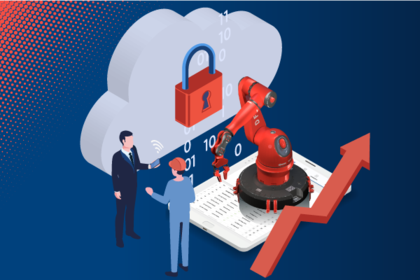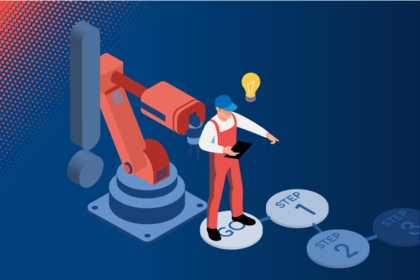Greater Sustainability in Machine Construction with Aftersales and Service
Many machine, plant, and equipment manufacturers want to become more sustainable, but do not have the manpower to do so. Discover how aftersales and service can contribute to greater sustainability for your company and customers, and what you need to achieve this.
More than a Trendy Concept: what does Sustainability mean for Businesses?
Be it in the private or commercial sphere, sustainability is omnipresent. Acting sustainably means meeting the needs of today's generations without depriving future generations of the chance to meet their own needs.
This is not just about climate protection, but also encompasses the following aspects:
- The ecological dimension aims to protect and preserve the environment and natural resources. Companies act in an eco-friendly manner when they improve their carbon footprint, reduce waste, and use renewable energy sources.
- People are at the heart of social sustainability. Socially responsible businesses are concerned with the effects of their actions on their employees and society, and promote diversity and inclusion in the workplace.
- Economic sustainability means being commercially viable in the long term while at the same time taking social and ecological aspects into account. Businesses must create value for employees, customers, and society that extends beyond financial profit.
Customers, employees, and job applicants are increasingly expecting companies to align their actions with these factors. At the same time, regulatory pressure is growing, so the importance of sustainability in the economy is high.
How relevant is Sustainability for Companies?
The Bertelsmann Foundation's Sustainability Transformation Monitor shows that the trend toward increased sustainability is continuing unabated. In 2023, the subject became even more important for 84 percent of businesses, despite several crises. More than half of respondents have firmly established sustainable practices in their corporate strategy.
According to PwC, more and more machine and plant manufacturers are also pursuing a sustainability strategy. However, only a third have formulated a roadmap with concrete measures and responsibilities, and less than 50 percent feel well prepared for future requirements, in particular regulatory requirements.
Which sustainability requirements do machine, plant, and equipment manufacturers need to fulfil?
New regulations are in the pipeline or are already in force that also affect companies in the machine and plant construction sector for every single one of the sustainability aspects mentioned above. In the social dimension, the Supply Chain Act obliges companies to ensure human rights are protected along their supply chains and to meet environmental obligations.
The "Sustainability in Service" (German: “Nachhaltigkeit im Service”) study conducted by the German service industry association KVD highlights additional regulations, the most important of which are summarized below.
1. Reporting obligation
Many companies already have a reporting obligation, but the EU's new Corporate Sustainability Reporting Directive means that they must now also report on the impact of their economic activities on the environment.
In the future, the number of companies that will have to report extensively on sustainability aspects in the areas of the environment, society, and corporate governance will increase significantly.
2. Carbon footprint
When assessing their environmental impact, machine and plant manufacturers must take various categories of greenhouse gas emissions into account. These include direct emissions caused by their plants, indirect emissions, for example through the purchase of electricity, and emissions that occur outside of the company's direct control—for instance in the life cycle of machines, plants, and equipment.
The last category in particular is difficult to assess, as it depends on several variables, such as how durable the products are and what happens to them at the end of their service life. For assessment purposes, machine manufacturers must therefore integrate measures such as life cycle analyses into product development.
3. EU Green Deal
Recording CO2 emissions is the basis for a climate-neutral economy, which is what the EU aims to achieve with the Green Deal. Over the long term, it is therefore to be expected that not only will consumer goods manufacturers have to record their carbon footprint, but also machine manufacturers.
4. Ecodesign Directive
The aim of the Ecodesign Directive is to ensure that fewer products are thrown away. Products such as machines and appliances should in future not only be more energy and resource efficient, but manufacturers must also focus on durability, reliability, reusability, retrofittability, reparability, and recyclability.
What can Aftersales and Service do for the Sustainable Development of your company?
In order to achieve self-imposed or legally defined sustainability targets, machine manufacturers need the support of all departments. In the long term, product development can have a big impact, while in the short term, aftersales and service in particular can push forward sustainability in the company.
How service contributes to greater sustainability
Aftersales service can, for example, ensure that machines, plant, and equipment can be repaired efficiently and used for longer.
The following are possible starting points:
- Predictive maintenance
- Offering repair services
- Digital spare parts catalogs
- Operator and subscription models
- Customer portals with self-service options
- Digitalization of technical documentation
- More efficient service callouts
- Retrofitting and 3D printing of spare parts
The objective is durable machines and tools, because these conserve resources, save on costs for operators, and strengthen customer loyalty.
You can find specific examples of sustainable service in machine construction and tips for implementation here.
Challenges on the path to Sustainability
According to the “Sustainable Service” BearingPoint study, 90 percent of machine and plant manufacturers are already working on sustainable service concepts. However, only around 25 percent can measure emissions extensively. In fact, 13 percent of the machine manufacturers surveyed state that they cannot even estimate their emissions.
A similar picture can be seen in the degree of implementation of technical solutions, with only 20 percent of respondents using virtual assistants in the field. Sensor technology, networking, and integration are only used permanently by 23 percent of respondents.
Using Digital Technologies
Both employees and managers in the machine construction sector cite staff shortages as the reason behind the slow implementation of sustainable measures. Systems such as the digital information twin or digital spare parts catalogs from Quanos can help to remedy this.
The solutions support service managers with their challenges by simplifying entry into the world of digitalization and helping service organizations to operate more sustainably, whilst reducing the workload for their teams at the same time.
The solutions from Quanos form the basis for sustainable business models, for example digital aftersales portals: Service technicians and their customers will find all relevant information on machines and spare parts in a clear, easy-to-use format, which has several positive sustainability effects:
- Maintenance and servicing become more efficient, for example through linking of technical documentation and spare parts information.
- Operators can identify and order spare parts more easily, which extends the machine life cycle.
- The planning of service callouts can be improved and technicians always know the status of the machine and previous callouts. This reduces downtime, increases customer productivity, and conserves resources.
With digital service solutions, machine manufacturers can manage the sustainable development of business models, optimize their customers' processes, and reduce workload for their own employees.
Quanos solutions contribute to all sustainability dimensions. Find out how Quanos InfoTwin can support you when it comes to service and take a look at the cloud solution in a free demo.




